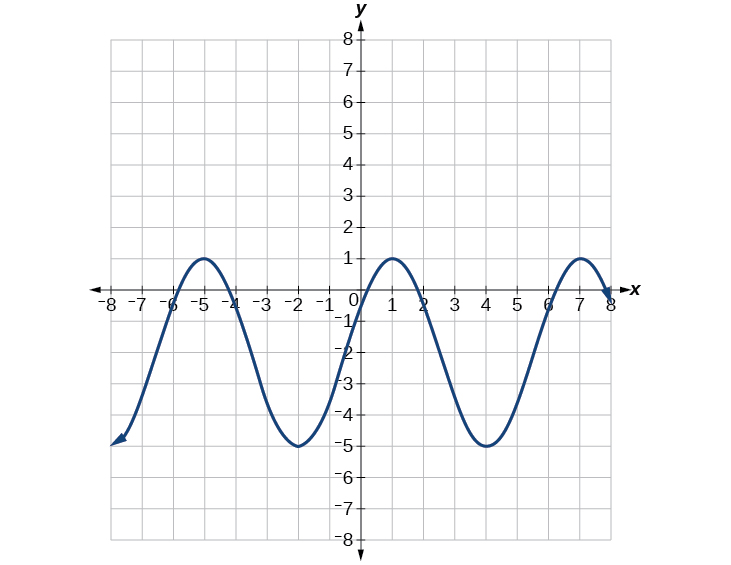These are the solution(s) to the equation
x^2+10x+21=0
x=-7; x=-3
These are the zero(s) of the rational function
f(x)=(x+9)/(x-13)
x=-9
This is the type of exponential function that the function shown below is
y=(9/10)^x
What is Decay?
This is the value of
log_9(81)
2
This is the quadrant that the terminal side of the angle below lies in
-(23pi)/7
2nd Quadrant
These are the solutions to the equation
x^2-17x+60=0
x=5; x=12
This is the horizontal asymptote of
y=(2x^3)/(x^4-5x^2+1)
y=0
$300 invested at an annual rate of 8.1%, compounded continuously, for 17 years.
$1,188.90
This is the value
log_5(1/125)
-3
If cos(x) = 9/10 and x is an acute angle, this is the value of sin(x)
sqrt19/10
These are the zero(s) of the function
f(x)=2x^2-10x
x=0; x=5
This is the horizontal asymptote of
f(x)=(6x^2+7x+2)/(18x^2-36)
y=1/3
These are the solution(s) to the equation
5^(x+3)-10=7
log_5(17)-3
These are the solution(s) to the equation
6log_3(2x+1)-2=22
x = 40
This is the value of
cos(13pi)
-1
These are the solution(s) to the equation
5x^2-2x-24=4x^2+3x
x = 8 and x = -3
These are the vertical asymptote(s) of
y=(2x+1)/(x^2-4)
x=-2; x=2
These are the solution(s) to the equation
5e^{4x+10}-1=9
x=(ln(2)-10)/4
These are the solution(s) to the equation
4ln(x-3)+7=9
sqrt(e)+3
The angle of elevation from a point on the ground up to the top of a tower is 63 degrees. The tower is 300 feet tall. How far is the point on the ground from the base of the tower?
152.9 feet
These are the zeros of the function
f(x)=x^5+7x^4-30x^3
x=-10; x=0; x=3
These are the zero(s) of the function
f(x)=(x^4-5x^2)/(x-2)
x=0, x=pmsqrt5
This is how long it will take for $300 invested at an annual rate of 8.1% compounded continuously to DOUBLE.
Approximately 8.6 years
These are the numbers that you cannot take a logarithm of.
What are 0 and negatives?
This is the equation of the sinusoidal function below (in y = a*sin(b(x-c))+d or y=a*cos(b(x-c))+d form)

y=3cos(pi/3(x-1))-2